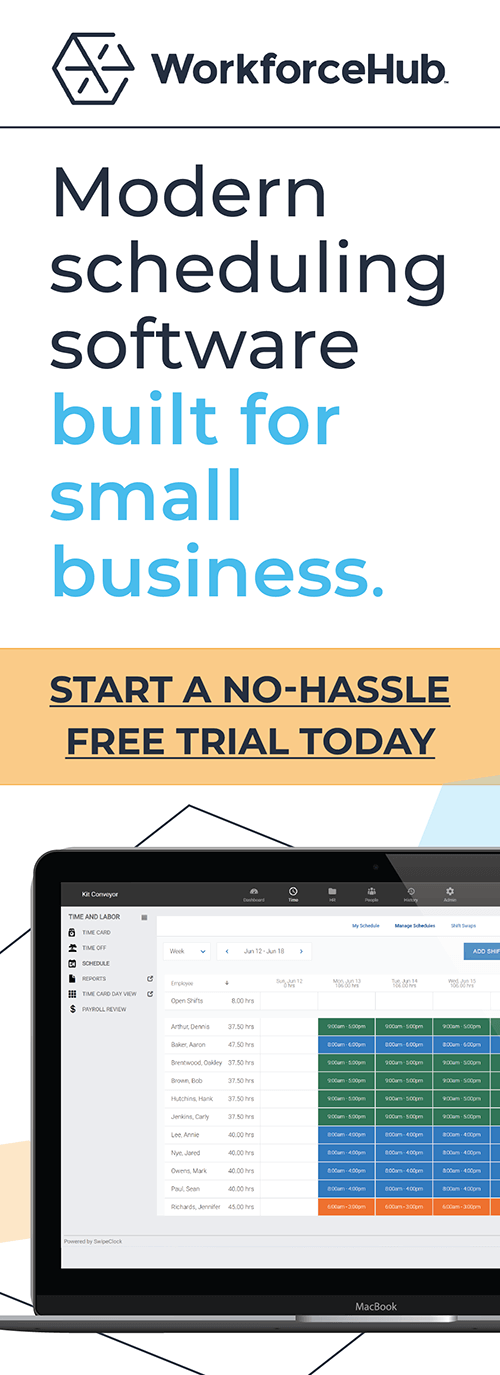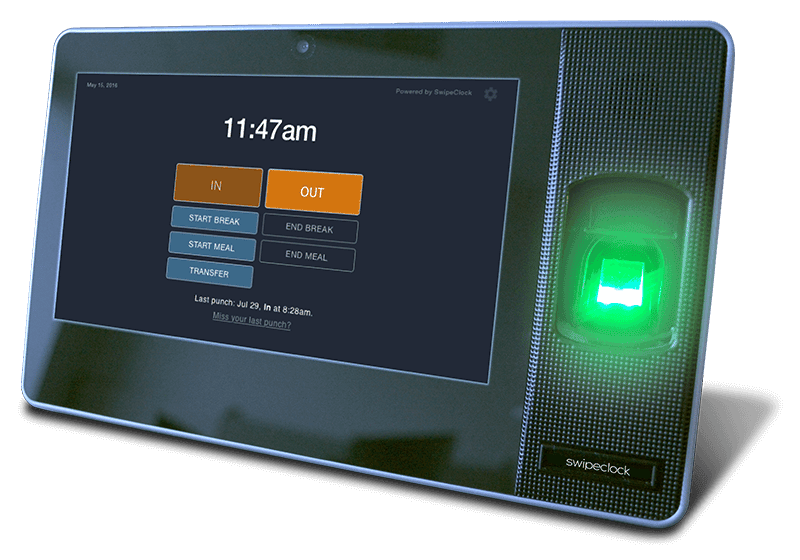Wage And Hour Recordkeeping: Would Your Records Protect You In Case Of A Labor Dispute?

Just last month, a New Orleans bakery was ordered to pay $127,128 to employees to settle a labor dispute. Part of the violation? Inadequate record keeping. According to the DOL:
“The company violated FLSA record-keeping provisions when it failed to keep required payroll records for some employees, paying them in cash with no documentation.”
Sadly, this happens on a regular basis to small businesses who are likely not budgeting for these unexpected and costly expenses!
Every law that affects the workplace requires some form of documentation. Proper recordkeeping is an important component of compliance. New business owners need to educate themselves on the laws and develop effective compliance practices.
Some business owners don’t take the laws seriously when they have just a few employees. This is a dangerous lapse in judgment. It only takes one employee to bring a wage and hour lawsuit. And a worker can challenge an employer even when they are no longer with the company.
If you have been lax about compliance, it’s time to get on the right track.
Don’t Risk Your Business With Inadequate Wage and Hour Recordkeeping
Did you know?
Most employment laws are written to place the burden of proof on the business! That means that employers with inadequate records and automatically assumed to have violated the employment law in question. Even when an employment law is not written with assumed employer guilt, judges usually rule in favor of the employee when there are insufficient records.
This results in cases where a business owner is actually in compliance with the employee-relations portion of the law but is penalized for having inadequate records. (Under these laws non-compliance includes keeping inadequate records)
Be aware!
That if your records are destroyed by fire, flood, data loss or other disasters, that your business would still be considered “not compliant”. Check out this article on what to do when data is lost. (Hint: Address the loss as soon as it happens and don’t wait until after a labor dispute occurs)
Would Your Recordkeeping Protect You In An Audit?
Are you aware of the federal and local FSLA recordkeeping requirements?
Many states require the employee’s full payroll records to be kept. Often employee schedules and records of actual time worked must also be kept. Some cities and states require employee PTO or sick leave use to be recorded and kept. FMLA law require specific records.
Employers would be wise to review their recordkeeping practices often. (And follow all the laws, as well!)
What Records Am I Supposed To Keep?
Most business owners keep records of the obvious information. This includes employee name, contact information, and hire date. Hopefully, you are doing that. There is a lot of other data that must be kept, as well. As mentioned above, these records often include:
- Employee schedules (including all revisions)
- Employee actual hours worked, times worked, and any additional compensation
- Employee time off, sick leave, and unpaid leave
- Accrued sick leave, balance and paid sick leave hours
- Employee FMLA leave requests, approvals, denials, and all leave taken, including an adjusted schedule
- Modifications made to accommodate disabled employees
- Employee safety requirements (often required by safe time laws to protect against domestic violence)
Under the FLSA, employers must keep the following information:
Employee’s full name and social security number
Address, including zip code
Birthdate, if younger than 19
Gender
Job title
Time and day of the week when employee’s workweek begins
Total hours worked each day
Total hours worked each workweek
The basis on which employee’s wages are paid (hourly, weekly, commission, piecework, etc.)
Regular hourly pay rate (even if they are compensated in some other way)
Total daily or weekly straight-time wages
Total overtime earnings for the workweek
All additions to or deductions from the employee’s wages
Total wages paid each pay period
Date of payment and the pay period covered by the payment
Keep For 3 Years:
Payroll records
Union contracts
Sales records
Purchase records
Keep For 2 Years:
Timesheets
Piecework records
Wage rate tables
Work schedules
Records of additions to or deductions from paychecks
Don’t Toss The Records After An Employee Leaves The Company
It’s important to note that employers must also keep records for staff members who have been terminated. When in doubt, keep the records until you confirm the time requirements for all applicable laws.
Are Your Recordkeeping Practices Adequate?
Are employee time and attendance records accurate?
Are the records accessible?
Do you follow best practices for data security?
Are staff members paid for all the time worked? (Employers should not require staff members to work before and after shifts, or off the clock.)
Does your time and attendance system accurately calculate PTO?
Would the data stand up to a labor audit?
Can employees cheat the system?
Is Your Time and Attendance System Automated?
If not, you might be non-compliant. Manual processes are not sufficient to help you maintain compliance.
There are two issues that arise most often with manual timekeeping.
- They are prone to human error.
- They can be exploited by dishonest employees.
Cloud-based automated time and attendance systems keep the records for you. The records are stored electronically in the cloud—not on your company servers. Your timekeeping provider handles the technical support and data security. When you need to access a record, you can do a search and bring up the document in seconds. If a DOL auditor shows up at your business, you don’t want to be shuffling through file cabinets to find employee documents.
Make Sure Your Employees Know How To Use Your Timekeeping System
Whether you have a manual or automated system, your records won’t be accurate if your employees don’t know how to use the system. Answer these questions to assess the competence of your workforce:
Do they know how to properly punch in/out for shifts?
Do they know whether to punch out for meals and breaks?
Do they know how to add time cards?
Do You Know The Workplace Laws?
Do you understand and comply with the FLSA, Affordable Care Act (ACA), and Payroll Based Journal (for long-term healthcare facilities)?
Are you subject to a Predictable Scheduling or Fair Workweek law? These laws are becoming more prevalent around the country. If you require employees to be on call, you might be in violation. If you don’t post the schedule two weeks in advance, you might be in violation. Consult an employment attorney to make sure you are following the law.
Do you understand and follow the Family Medical Leave Act (FMLA)? Some states have passed Family Leave laws that provide more leave than the Federal law.
Are you subject to any other state or local laws that are stricter than Federal wage and hour laws? Some of these affect all employers. Other apply to employers who have seasonal employees or independent contractors. If you work on government contracts, you might also be subject to additional laws.
Do Your Managers Help You Stay Compliant?
Managers can make or break a business when it comes to compliance. Do your managers know how to verify time cards? Do they know how to approve shift change requests? Do they know company policies regarding overtime? Work with your managers to protect your company.
You must be able to trust your supervisors to maintain compliance. Managers must understand the importance of complying with overtime laws, sick leave requirements, and scheduling laws. Too often, a manager may “encourage” an employee to stay a few minutes late after clocking out. Other instances of violations include managers who refuse to pay for employees to don and doff uniforms on the employer’s property. In other recent violations, managers created an atmosphere that implied pressure on employees to work for hours that were not recorded.
There are plenty of managers who have been caught fudging on overtime, time sheets, or minimum wage. This is more likely if they are under pressure to meet an unrealistic deadline or labor budget.
Automated Time And Attendance Makes Recordkeeping A Whole Lot Easier
Now is the time to make compliant wage and hour recordkeeping a priority. Purchasing an automated timekeeping system may be the most important decision you make this year.
An automated timekeeping system captures the data required for wage and hour compliance. It tracks hours, overtime, schedules, PTO, and breaks. It creates digital time cards automatically. Your employees won’t have to fill out paper timesheets. You won’t risk addition errors that could result in an inaccurate paycheck.
WorkforceHub automated time and attendance systems help employers follow recordkeeping laws. Contact us to learn how WorkforceHub can protect your business.
Simplify HR management today.
Simplify HR management today.
The Importance of Facial Recognition Time Clocks for Small Businesses
Updated April 17, 2024 A facial recognition time clock is no longer a luxury. Advanced biometric clocks are a must-have for today’s workplaces. A facial recognition time clock is the best technology for tracking employee time. It solves a multitude of problems employers are facing with their workforces. What is a Facial Recognition Time Clock?…
Read MoreEmployee Time Clock Hardware: Which is the Best?
Updated April 9, 2024 What is employee time clock hardware? An employee time clock is a hardware device for tracking work time. To use it, employees ‘punch’ in/out or ‘clock’ in/out. The term ‘punch in’ stems from early employee time clock hardware that required a physical card. With a traditional mechanical time clock, the process…
Read More





